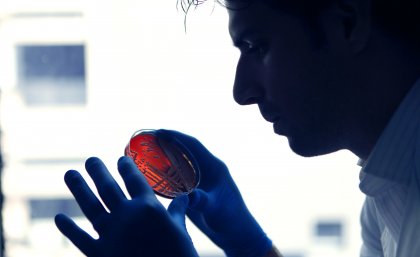
A new wave of highly antibiotic resistant superbugs has been found in the Middle East Gulf States, discovered by University of Queensland researchers.
UQ Centre for Clinical Research group leader Dr Hosam Zowawi said his team had witnessed rapid growth of the new multi-drug resistant clones – variants of existing superbugs in the Gulf States, but which had never before seen in the region.
“The new clones, dubbed super-superbugs for being internationally identified as high-risk, can destroy even last-line safe antibiotics,” Dr Zowawi said.
“These findings suggest that the region may also harbour unique superbug clones that are spreading and dominating the Gulf States.
“In the United States, the Center for Diseases Control and Prevention estimated that P. aeruginosa (a bacteria) is responsible for more than 50,000 hospital-related infections each year.
“The increased prevalence of these high-risk clones, the super-superbugs, is worrying because they can be very difficult to treat and may lead to death in immunocompromised patients or those in intensive care.”
The study also found identical high-risk P. aeruginosa clones have found their way to different cities in the Gulf States.
“We knew that some clones could thrive inside individual hospitals and spread from one-patient to another, but it’s the first time we’ve identified a clone scattered across the entire Arabian Peninsula.”
Dr Zowawi said changes were already being put into practice within the region.
“In response to this threat, all of the Gulf countries have established national action plans to combat antimicrobial resistance,” Dr Zowawi said.
“Surveillance, antibiotic stewardship, infection control protocols and education are some of the tools used to combat superbugs.”
Centre Director Professor David Paterson hopes the international study will draw attention to how widespread superbugs are, leading to better infection control measures and more considered antibiotic use.
“Better diagnostic methods, in conjunction with up-to-date regional surveillance data, will improve the targeted use of antibiotics and could save lives by helping microbiologists track outbreaks around the world,” he said.
The research findings are published in the Journal of Medical Microbiology.
The research was supported by funds raised during the philanthropic Carder Polo Cup under the patronage of the Royal Brisbane and Women’s Hospital Foundation, Superbug Slayers Polo Initiative, SuperbugsFree movement, Queensland Polo Association and Alsace Polo.
Media: UQ Faculty of Medicine, Kate Zischke, kate.zischke@uq.edu.au, +61 7 3365 5133: Dr Hosam Zowawi, h.zowawi@uq.edu.au, Twitter @HZowawi, +61 7 3346 6041.
Images for media use, please make sure to acknowledge the copyright as © Rolex Awards/Julian Kingma.
نسخة باللغة العربية من المقابلة مع الدكتور حسام زواوي توجد على هذا الموقع
An Arabic language interview with Hosam Zowawi is available here.
.jpg)










